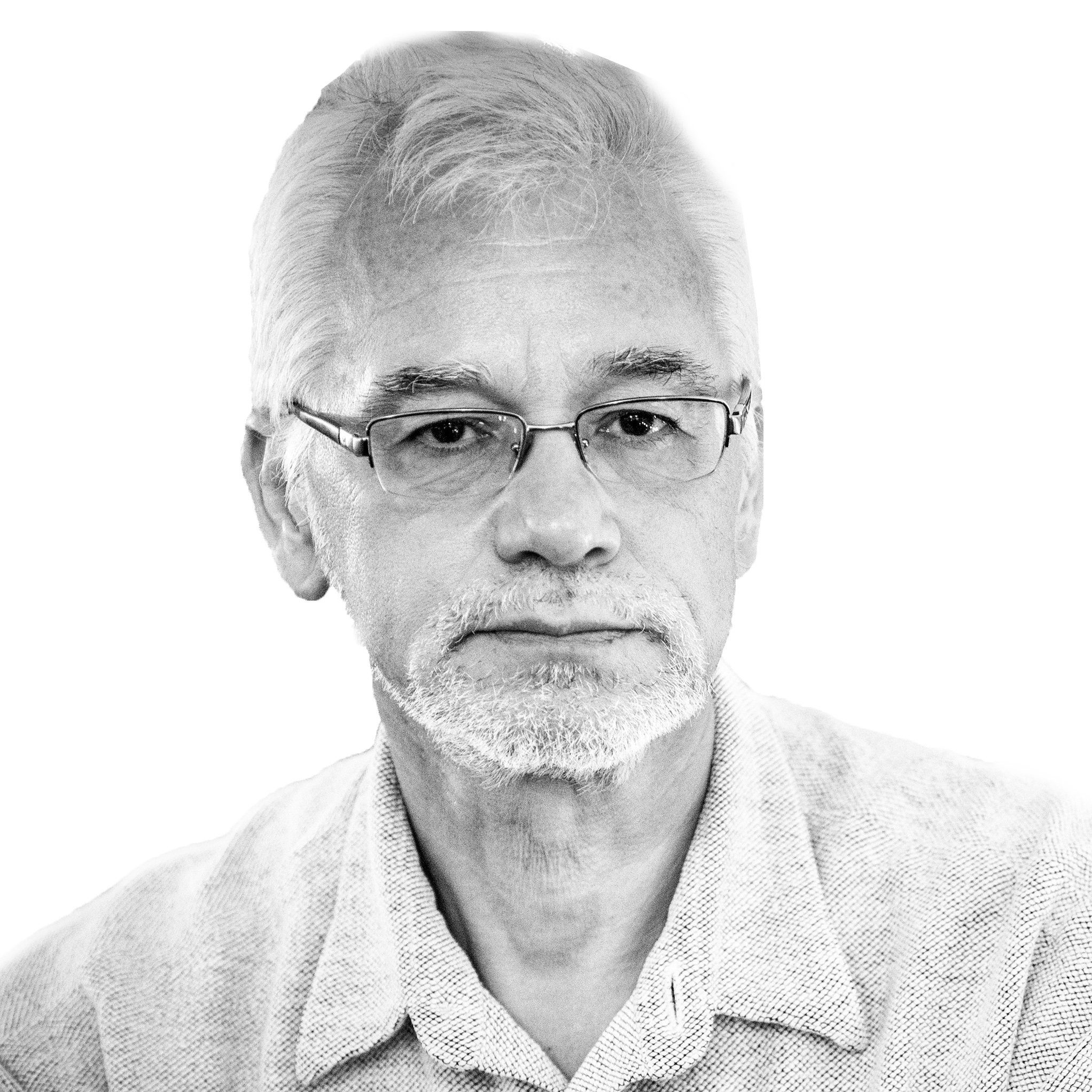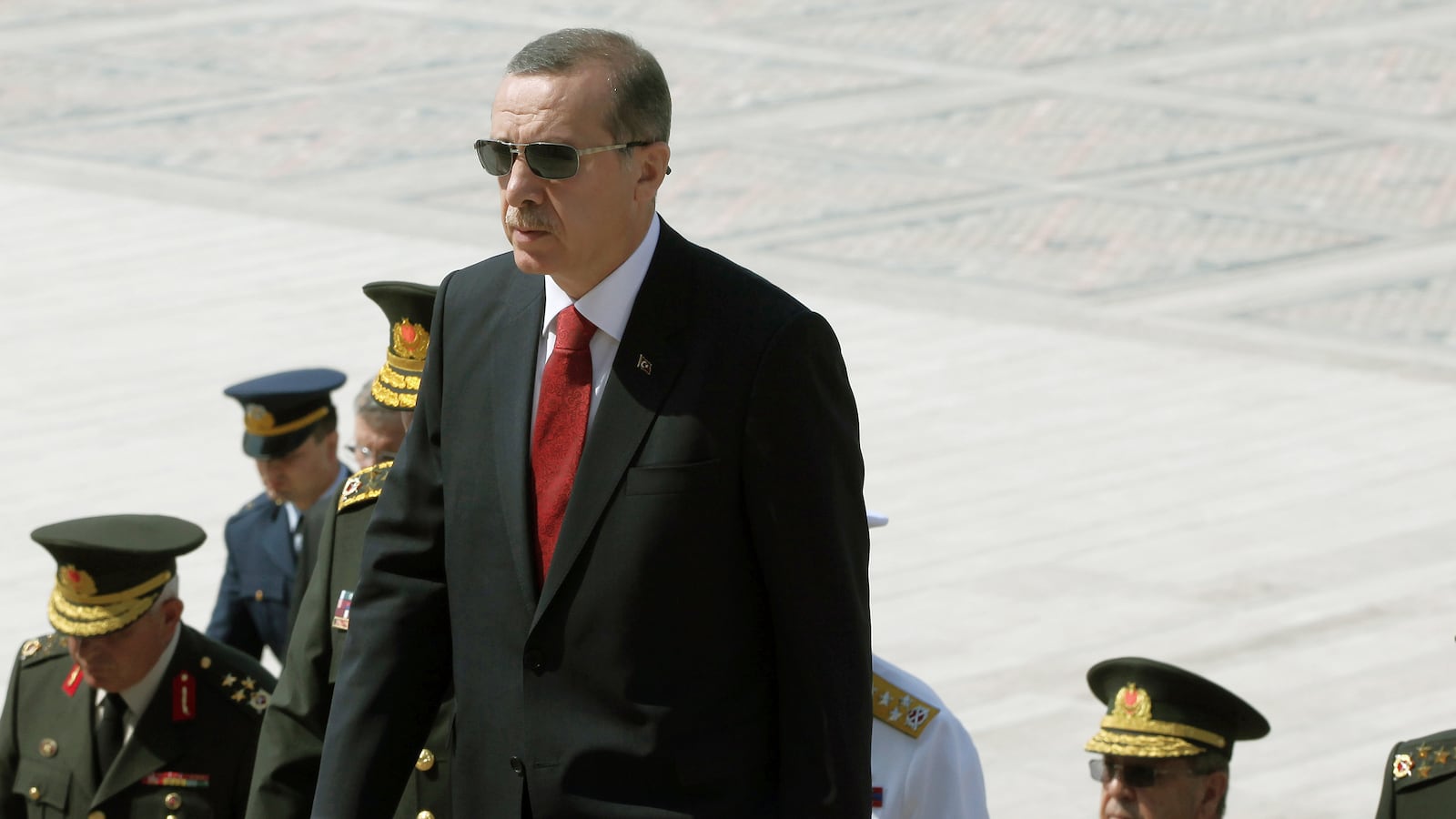ISTANBUL – The detention of 49 people in Turkey in a corruption case, and the subsequent sacking of five police chiefs who reportedly ordered the arrests, is shaking the power of Prime Minister Recep Tayyip Erdogan.
In a development that could undermine Erdogan’s reputation as a tough-talking but honest politician shortly before a string of elections in 2014 and 2015, the police, acting on orders of state prosecutors in Istanbul, on Tuesday detained a construction tycoon, a local politician from Erdogan’s ruling party and the sons of three ministers from Erdogan’s government. The son of interior minister Muammer Guler, who is responsible for the police, was among those detained.
The detentions were ordered after a two-year investigation into suspected corruption, money laundering and gold smuggling, according to Turkey’s state-run news agency Anadolu.
On Wednesday, various media outlets reported the subsequent firing of five heads of Istanbul police departments, including those overseeing organized crime, financial crime and smuggling units. Meanwhile, the Istanbul prosecutor’s office announced that it would be expanding the investigation and adding more resources. And unconfirmed news reports said prosecutors were pondering whether to widen the investigation to include not only the sons of politicians but four government ministers themselves, with a possible request by the judiciary to lift the parliamentary immunity of the ministers.
Observers speculated that the detentions were the latest stage of a confrontation between Erdogan’s government and the powerful movement “Hizmet” (Service, led by Islamic scholar and preacher Fethullah Gulen.
“The [movement] has adopted the tactics of ‘attack is the best form of defense,’” Rusen Cakir, a well-known newspaper and TV commentator and an expert on both Erdogan and Gulen, wrote on his website on Tuesday.
Gulen, 72, fled from Turkey to the U.S. in the late 1990s after he was convicted of trying to establish an Islamic state in Turkey. The conviction has since been overturned, but Gulen has remained in the U.S. and has been leading his movement from his home in Pennsylvania.
The Gulen movement, which has built up political influence through running thousands of schools all over the world, was a strong supporter for Erdogan during the prime minister’s first years in power, starting from 2003. Both “Hizmet” and Erdogan’s Justice and Development Party (AKP) promote Islamic values in the context of a modern democracy and both fought to clip the political power of Turkey’s strictly secularist military.
But lately, strains between the erstwhile allies have become apparent. The movement says it wants to reach out to as many parts of society as possible in a spirit of tolerance and respect based on Islam. But the government in Ankara has turned more authoritarian in recent months in an effort to attract conservative voters before local elections in March, presidential elections next summer and parliamentary elections in 2015.
The Gulen movement has been very critical of Erdogan’s hardline stance towards the wave of anti-government unrest that swept across Turkey in May and June. “That was an undemocratic way of dealing with protesters,” one high-ranking member of the movement said recently about the widespread use of tear gas and water cannons by the police.
The conflict between “Hizmet” and the government came to a head a few weeks ago when Erdogan announced a reform plan for the education system that would move to abolish private prep schools, many of which are financed and run by Gulen. That clash between the two sides provides the backdrop of Tuesday’s detentions, which were reported to have been ordered by state prosecutors loyal to Gulen.
News reports said Erdogan, the most powerful politician in Turkey in half a century, was unaware of Tuesday’s detentions and was informed only as they were underway.
In his first public response, Erdogan made it clear that he thought the prosecutors’ action was politically motivated. “We will not bow our heads to any threat,” the prime minister said during a speech in the central Anatolian city of Konya.
He added that whoever had a score to settle with the government should do so at the polling booth at local elections on March 30. The elections are seen as an important test for the AKP’s power.
The party, which raked in almost 50 percent of the vote in parliamentary elections in 2011, is a coalition of religiously-conservatives, nationalists and a small group of liberals who have been kept together by Erdogan’s charisma.
But recently cracks have appeared within the AKP. Two of the party’s parliamentary deputies, one of them a revered former soccer star, have resigned in protest over the government’s plan to weaken Gulen’s role in the education system.
The new corruption charges hit the AKP even harder. The party was voted into power in late 2002 with a mandate to clean up widespread corruption in Ankara—the “AK” in the party name is short for the Turkish words for justice and development, but also means ‘white’. Erdogan, who became prime minister in March 2003, has built an image of a politician with a set of firm values rooted in Islam who does not tolerate corruption.
But critics say Erdogan has used corruption cases to get rid of political rivals and failed to fight corruption in the AKP. Turkey ranks 53 out of 177 countries in a corruption perceptions index by Transparency International, an anti-corruption NGO.
The secularist Republican People’s Party (CHP), Turkey’s biggest opposition party, on Tuesday said Erdogan and the three ministers whose sons were detained should resign.
While that is unlikely to happen, Erdogan has clearly suffered a strong setback. Commentator Rusen Cakir wrote that even though the investigation that led to Tuesday’s detentions was still ongoing, the damage for Erdogan had already been done. “The ruling party has been seriously injured,” he wrote.
Cakir added that the AKP performance in the upcoming election marathon could be affected by the case. The prime minister is widely believed to seek the presidency for himself. But a weak showing for the AKP in local polls could undermine those calculations. “Erdogan’s projects could be at risk,” Cakir wrote.





